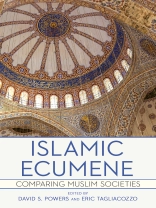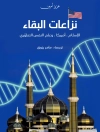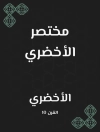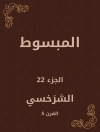The essays in Islamic Ecumene address the ways in which Muslims from Morocco to Indonesia and from sub-Saharan Africa to the steppes of Uzbekistan are members of a broad cultural unit. Although the Muslim inhabitants of these lands speak dozens of languages, represent numerous ethnic groups, and practice diverse forms of Islam, they are united by shared practices and worldviews shaped by religious identity. To highlight these commonalities, the co-editors invited a team of scholars from a wide range of disciplines to examine Muslim societies in comparative and interconnected ways. The result is a book that showcases ethics, education, architecture, the arts, modernization, political resistance, marriage, divorce, and death rituals.
Using the insights and methods of historians, anthropologists, literary critics, art historians, political scientists, and sociologists, Islamic Ecumene seeks to understand Islamic identity as a dynamic phenomenon that is reflected in the multivalent practices of the more than one billion people across the planet who identify as Muslims.
Mục lục
Introduction
Urdu Ethics Literature in Colonial India: Akhlāq in the Vernacular
Educating Muslim Intellectuals
Algerian Personal Names and the Colonial État Civil, 1850-1900
British Rule and Omani Marriage in Colonial Zanzibar
Kenyan Muslims and the Political Imagination of Space on the Indian Ocean Rim
Sovereignty, Slavery and Diplomacy in Late Eighteenth-Century Sulu
The French Revolution Comes to the Indian Ocean
The Politics of Identity and Religion
Religious Routes to Racial Progress in West Africa
The Lhasa Uprisings of 1959 and 2008
Muslims and Politics in the Southern Philippines
Walls, Wonder, and the Edges of the Muslim World
Alevi Cemevis and ‘Mosque Culture’ in Turkey
Visual Depictions of Muslim Heroines
A Russian Columbus
Media Coverage of Islam in Contemporary Germany andthe United States
Muslim Devotional Singing in the Two Bengals
Reflections on Art and Nation Building
Ottoman Modernization and the Translation Bureau
Reading Cultural Translation
Transliminal Comparisons in the Tombstone Inscriptions of Muslim and Christian Rulers in the Maghrib and Iberia
The Tomb of al-Shadhili in Mocha, Yemen
Giới thiệu về tác giả
Eric Tagliacozzo is John Stambaugh Professor of History at Cornell University. He is the author of The Longest Journey, and co-editor of The Hajj. David Powers is Professor in the Department of Near Eastern Studies at Cornell University. He is the author of Muhammad is Not the Father of Any of Your Men.












